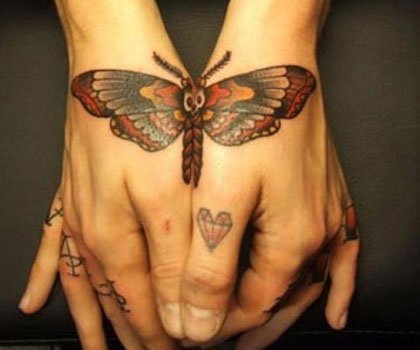For Barret Beyer, the tattoos that cover nearly half of his body tell the story of his life.
“I can’t speak for most people or about why they get tattoos,” said Beyer, 33. “I can speak for myself and say that my ink tells my life story. Each tattoo represents a different chapter or something that defines who I am.”
Regardless of where an individual lives, works or plays, it appears that taboos about tattoos are fading as demand grows, even among professionals like doctors and lawyers.
A recent survey by ABC News revealed more than one in 10 Americans admitted to having a tattoo. Another poll, conducting by NBC News and the Wall Street Journal, revealed that 40 percent of Americans have someone in their household with a tattoo, up from 21 percent from 15 years ago.
“Tattoos are no longer exclusively adorned by long-haired bad boys whose preferred method of transportation is a motorcycle. They are worn by the young, the old, mothers, grandmothers and you may even find a few priests sporting one last sign of their younger years,” said Dana Dovey of the web-based journal, Medical Daily.
Many of Hollywood’s biggest stars also are openly sporting their ink, as are elite athletes, models, corporate heads, nurses, doctors and those in the legal profession.
“The popularity of tattoos has grown tremendously over the years and there are various reasons for it,” said Aaron Trimiar, one of the few African-American artists in the Baltimore/Washington area. “I’ve seen plenty of trends happen because of celebrity idols. I’ve seen it mostly happen with women. From the girls with no tattoos, to the ones that only want small tattoos because they think that they don’t have that much skin, or believe that girls shouldn’t have big tattoos.”
A 2013 study by the Pew Research Center in Northwest concluded that 45 million Americans now have at least one tattoo. Authors of the study say 36 percent of adults between 18 and 25 and 40 percent of adults between 26 and 40 reported that they are inked up.
Further, females make up 59 percent of all those with tattoos, which has become a $1.6 billion business, based on analysis performed by Forbes magazine and others.
“I’m a professional who loves to get tattoos,” said Lynn Gonzales, whose 21 tattoos include a cartoon character and a family member. “For me, tattoos are a form of individual expression. I get one for each significant moment in my life, good and bad,” she said. “My body is a tapestry of my successes and failures.”
Despite many professionals now choosing to get permanent body art, researchers show that a tattoo could compromise a job applicant. In 2011, the website careerbuilder.com, surveyed thousands of hiring managers and 31 percent said that if two employees were equal, they would promote the one without a visible tattoo.
“I think that corporate America tends to still remain fairly conservative, particularly those in customer-facing roles,” said Tony Deblauwe, a board member of the Human Resources Association in Northern California. Deblauwe says it’s wise for professionals who might be seeking employment to keep their tattoos out of sight.
York College of Pennsylvania’s Center for Professional Excellence conducts an annual survey to measure the status and definition of professionalism in the workplace.
In 2013, officials at the school surveyed 401 random human resources professionals on several topics, including the effect of tattoos during the hiring process. The survey found that 60.6 percent of respondents indicated that visible tattoos had a negative affect on an individual’s chance of being hired. An additional 4.2 percent noted that non-visible tattoos could also negatively affect hiring chances.
“This is indicative of how important appearance can be during the hiring process,” said Jeff Canning, a public relations specialist with Dick Jones Communications in Pennsylvania, which released the information on the York College study.
Health concerns still dominate questions asked of shop owners and those who perform the work. Officials at the Mayo Clinic in New York said that anyone considering a tattoo or other permanent body art should carefully consider whether the parlor they’re visiting has high health standards.
“When I see a tattoo on a beautiful woman I immediately have a negative impression,” said local resident Etta Warner. “If I was in business, I would not hire a person with a tattoo.”
